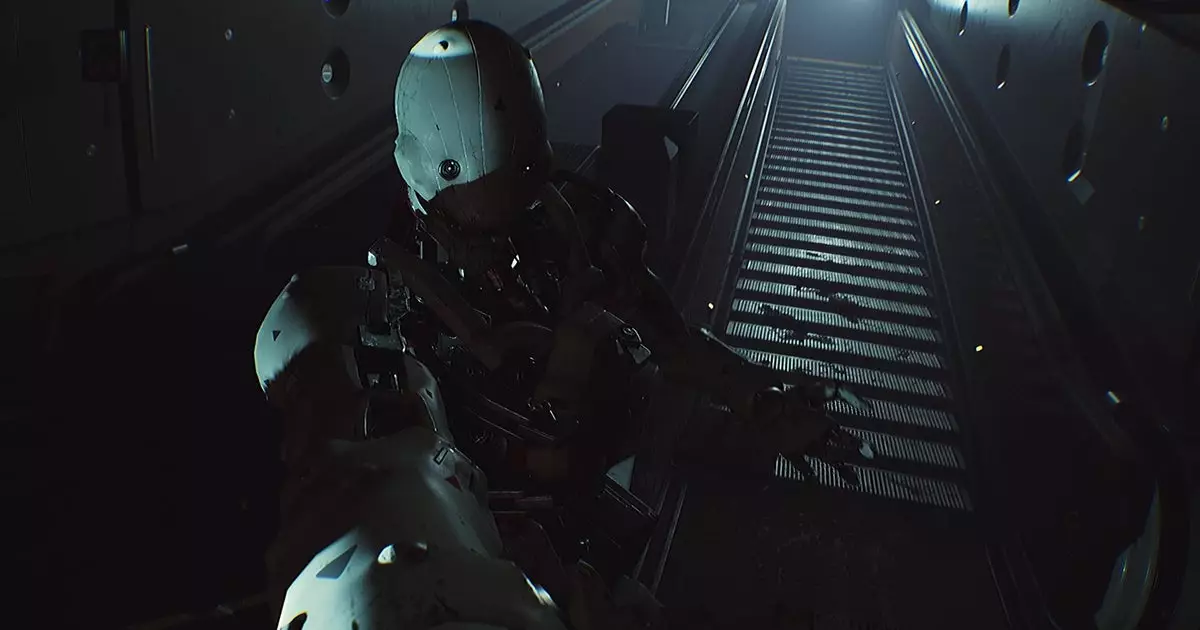In today’s fast-paced gaming industry, where titles are often released within a couple of years from announcement, the story of Routine stands out as a testament to unwavering perseverance. Developed by Lunar Software, the project has persisted through nearly a decade of silence, setbacks, and shifting industry landscapes. Such longevity is uncommon, especially for indie projects that operate with limited resources and small teams. The game’s journey reminds us that patience, dedication, and a clear vision can stretch across years, and sometimes, even a decade, without losing relevance or creative integrity. Routine’s prolonged development carries a quiet message: quality and innovation often demand time, and rushing to release can undermine the very essence of a game’s identity.
Resilience Amidst Uncertainty and Change
Throughout its development, Routine has encountered both hurdles and moments of hope. The departure of composer Mick Gordon, a notable shift, signified the challenges inherent in long-term projects, yet the team’s resilience remained intact. The developers’ transparency—sharing updates, acknowledging delays, and emphasizing their focus on finishing rather than rushing—demonstrates a maturity rare in the industry. Their approach champions the importance of crafting a game that aligns with their original vision, rather than succumbing to industry pressures for immediate market release. This attitude underscores a core belief: delivering a polished, meaningful experience outweighs hasty launches driven by marketing deadlines.
Harking Back to the Golden Era of Horror Gaming
Routine’s nostalgic aesthetic—the 80s sci-fi theme, the pixelated graphics, and the survival horror elements—serve as a love letter to a bygone era. The game evokes memories of classic titles like System Shock and the original Dead Space, revisiting the feeling of exploration, solitude, and suspense that defined those bygone classics. However, it also signifies a yearning to breathe new life into those ideas with modern design sensibilities. The meticulous attention to detail in recreating the lunar colony’s environment—the plaza, arcade, and shopping areas—reflects a desire to immerse players deeply into an atmospheric universe that feels both familiar and fresh. This nostalgic reverence is not simply about homage but an intentional effort to evoke emotion and intrigue rooted in the genre’s golden age.
The Virtue of Still Being in Development
In an industry fixated on rapid turnover, the fact that Routine remains actively in development is inherently commendable. It signifies a steadfast commitment by Lunar Software to craft a final product that truly meets their standards, rather than succumbing to premature releases that often leave players disappointed. The developers’ statement highlights a crucial insight: patience pays dividends. It is evident they understand that the end product must be a culmination of careful iteration, fine-tuning, and creative refinement. While the absence of a definitive release date may frustrate some, it ultimately demonstrates integrity. In an age where teasers and leaks dominate, Routine’s quiet patience signals a maturity that few indie projects achieve.
The Power of Ambition and Artistic Vision
Lunar Software chose to set their game in a meticulously constructed universe that invites curiosity—an expansive lunar colony married with a threatening robot uprising. The decision to focus on atmospheric storytelling, immersive environments, and a retro-futuristic aesthetic underscores a bold artistic vision. The shift in audio direction after Mick Gordon’s departure hints at a flexible, resilient team that values quality over convenience. This approach, while risking prolonged silence, suggests that the developers are not merely trying to cash in on nostalgic themes but genuinely aim to deliver a distinctive experience that resonates on a deeper level. The game’s potential to stand the test of time hinges on this relentless pursuit of authenticity and craftsmanship.
The Industry’s Deal with the Devil: Rushing vs. Refinement
Routine’s extended developmental period exposes a broader industry dilemma—the temptation to rush projects for quick profit versus the discipline required to produce meaningful, lasting entertainment. When compared to recent horror titles like The Callisto Protocol or Fort Solis, which struggled to meet expectations, Routine’s approach appears more thoughtful. It reinforces a fundamental truth: quality is rooted in patience. The game’s legacy will not be judged solely on its release date but on the experience it ultimately offers. As gamers become increasingly savvy, the value of patience and careful craftsmanship becomes more prominent—attributes that Routine exemplifies, even if it means being behind schedule.
This ongoing saga demands a reevaluation of how success is measured in the gaming industry. Routine’s story is not merely about a game stuck in limbo but a reminder that some creative pursuits must resist the siren call of immediacy. In the end, the true reward lies in the promise of delivering a thoughtfully crafted experience, born of perseverance and a profound respect for gaming history.

